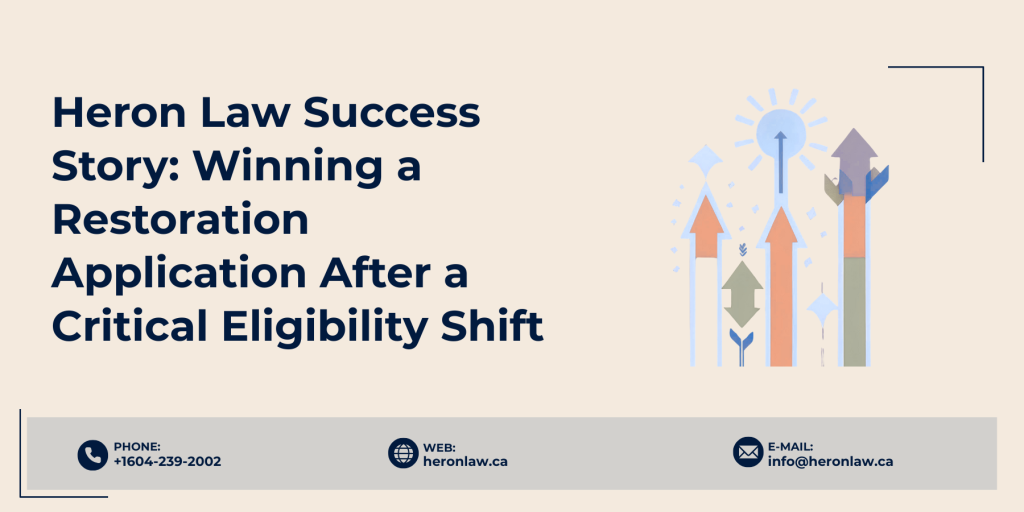Background & Key Facts
Our client was accompanying his wife, who held a Post-Graduation Work Permit (PGWP) in Canada. Originally, the wife qualified for a three-year PGWP, but because of her passport’s limited validity, she was issued only a two-year permit. Accordingly, our client, as her accompanying spouse, also received a two-year open work permit.
Later, with the assistance of an immigration consultant, they sought to apply for a work permit extension to obtain the final year they were eligible for. Unfortunately, a significant mistake was made: while an initial PGWP and accompanying spouse’s permit did not require the principal applicant to be actually employed at the time of submission, an extension requires proof that the PGWP holder is actively employed in a qualifying position. At the time, employment under any TEER 0 to 5 occupation was acceptable, but the consultant failed to submit proper evidence confirming the job’s TEER classification through a personalized list of duties:

As a result, our client’s open work permit extension was refused, and he lost his status in Canada.
Making matters even more urgent, in January 2025, IRCC announced that, effective January 21, 2025, open work permits for spouses of foreign workers would be restricted only to those whose spouses work in TEER 0 or 1 occupations and a few select TEER 2 or 3 jobs. The wife’s job did not qualify under the new rules. Time was of the essence.
Process
Upon being retained, one of our lawyers, Dr. Hamidreza Siavashpour, and the Heron Law team moved swiftly into action.
We conducted urgent strategy meetings with the client and worked after hours to prepare a complete restoration application before the critical deadline. We submitted the application on January 20, 2025, just before the new restrictions came into force.
However, a technical complication arose: while the application was properly submitted on January 20, the confirmation email from IRCC was automatically dated January 21, potentially subjecting the application to the new, stricter eligibility rules.
Anticipating such issues, our team had proactively stated in the Representative’s Submission Letter that the application was submitted on January 20 and should be assessed under the regulations applicable at that time. After submission, we immediately submitted a webform, attaching the payment receipt and reiterating that the application submission date was January 20.
Through careful documentation, proactive advocacy, and strategic communication, we ensured that IRCC correctly recognized the client’s eligibility.
Outcome
Our client’s restoration application was approved, and he successfully obtained an extended open work permit. His loss of status was fully resolved, allowing him to remain in Canada with legal authorization and continue his life alongside his wife.
Given the rule change that took effect mere hours after submission, this outcome represented a major victory—and a vital opportunity that might have been lost without precise legal strategy and fast action.
This client kindly left us a positive review:

Call to Action
Immigration processes are filled with small technical requirements that can have massive consequences. A single missing document or a misunderstanding of the rules can cost you your status—and sometimes, there may be no second chance.
Protecting your status is not just about completing forms; it’s about understanding the system and anticipating the risks.
When your future in Canada is at stake, seeking proper legal advice is not a luxury—it is an essential investment in your security and peace of mind.
If you are dealing with a loss of status, a refused application, or need urgent immigration support, contact Heron Law Offices today. We act swiftly, strategically, and with your best interests at heart.




